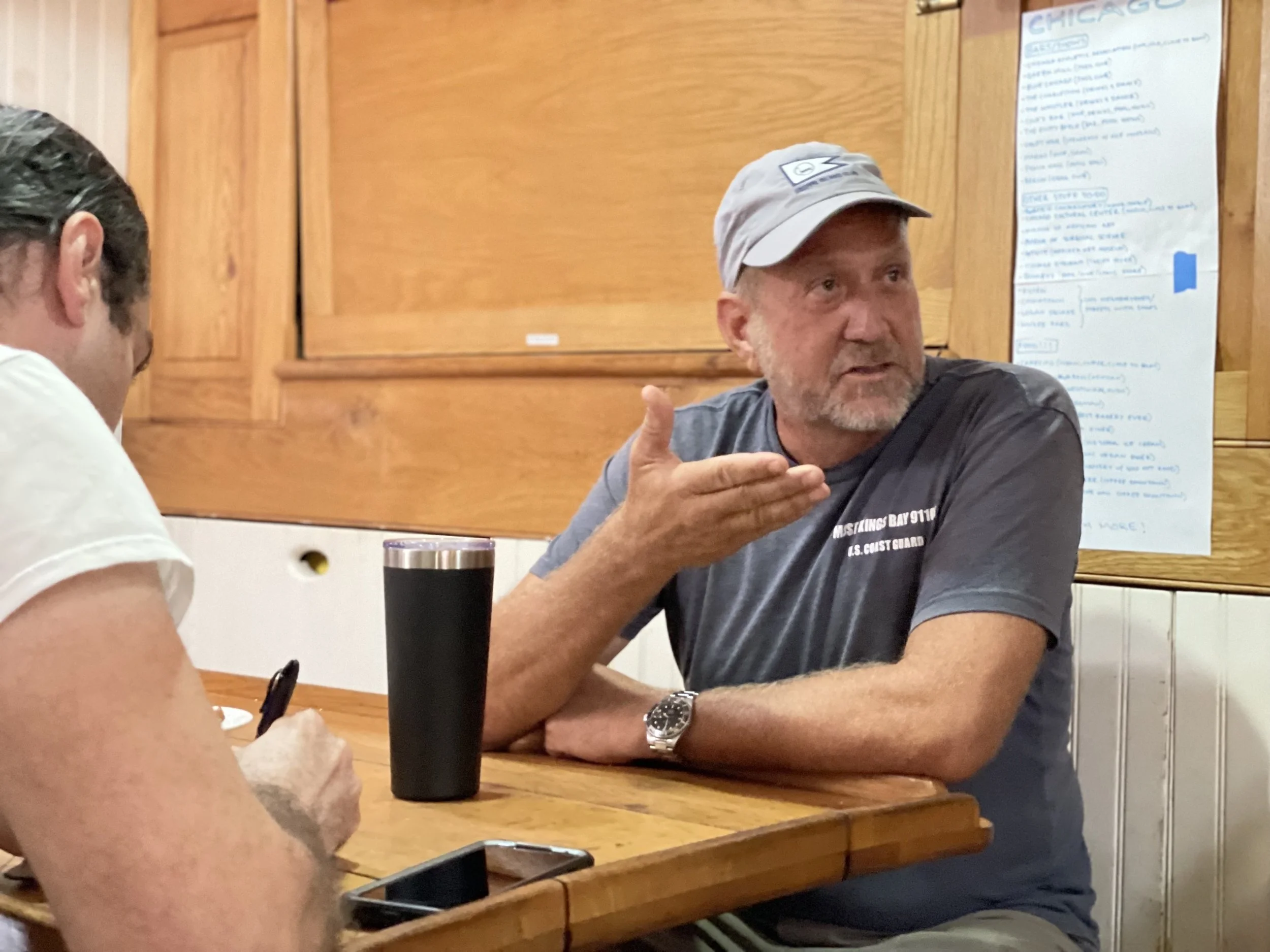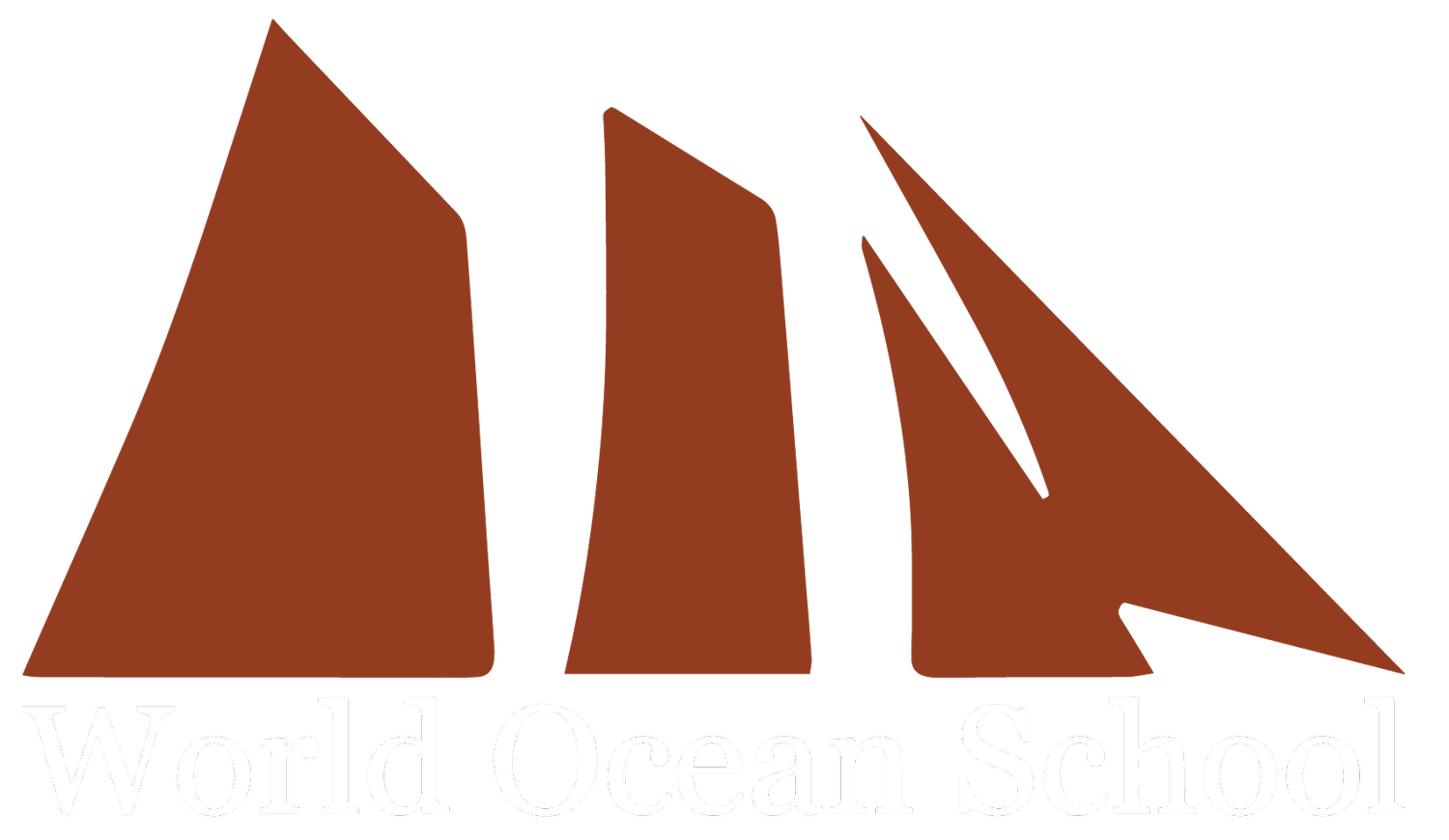River Travel
Chicago Yacht Club
Chicago, IL USA
Log Entry by Program Manager Tatiana Dalton
Monday, October 24, 2022
17:33
As a crew comprised almost entirely of blue-water mariners accustomed to saltwater sailing, we are already in a new world here in the Great Lakes—and things are only going to less familiar as we move from Lake Michigan into our first river tomorrow.
Knowing this, today Capt. Hill called an afternoon muster to brief us on some essential river knowledge. First of all, he said, no one on these rivers uses nautical miles or measures speed in knots. It’s all statute miles (standard land miles) and miles-per-hour from here.
There are other linguistic differences. The bow of the boat is called the head on the river, and tugboats are called towboats. Cleats are called kevels, but pronounced “kavels". I’m going to learn a whole lot during the next two weeks.
We discussed procedure for passing through locks (it’s a lot easier to go down than up) and the kinds of vessels we will encounter on our way (lots of them, including “tows” of barges a thousand feet long). The shape of a river bottom is constantly changing, he explained, but the commercial captains who work on these rivers know every bump and ridge.
“We’re heading for Yoohoo water,” Capt. Hill told us. It took me a minute to figure out that he was comparing the water in rivers like the Mississippi to chocolate milk. That certainly will feel different from St. Croix’s sparkling turquoise beaches or New England’s dark blue-green harbors.
Before the the work day ended, Capt. Hill and Capt. Flansburg oversaw the installation of one last safety feature: a 26-pound emergency brake. This small but mighty anchor has been rigged up on the stern to help the captains bring the vessel to a stop while moving downstream—if such a need arises.
If you’re familiar with the history of the schooner Roseway, you know that World Ocean School’s first vessel is a former Boston Harbor Pilot boat beloved for her service in that part of the world. I’m grateful to have Capt. Hill on board to guide us through a different set of waterways—there’s no substitute for knowledge gained through experience, generously shared.

